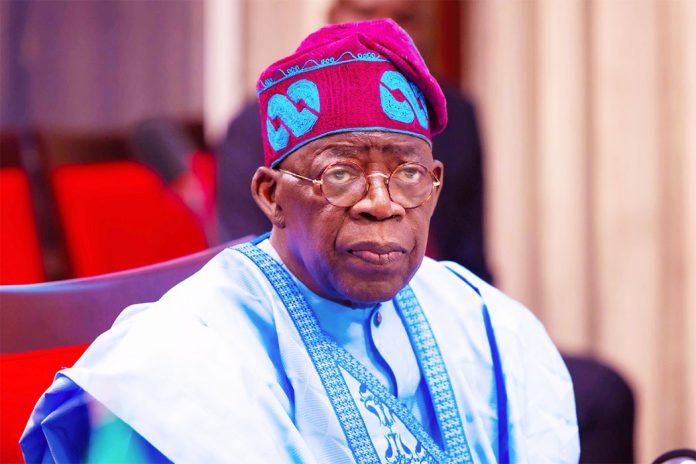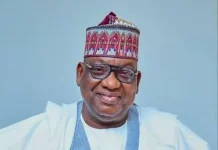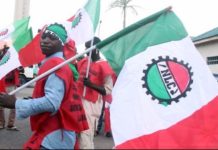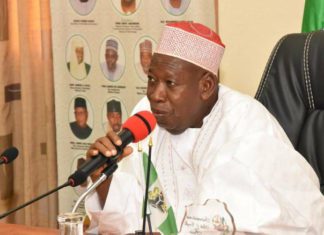/On Monday, President Bola Tinubu recognized that Nigerians still do not have enough jobs as a result of the economic progress and achievements of his administration.
This was stated by Tinubu in Abuja during the commencement of the 31st Nigerian Economic Summit (NES#31), which was organized by the Nigerian Economic Summit Group (NESG) in cooperation with the Federal Ministry of Budget and Economic Planning. Tinubu was represented by Vice President Kashim Shettima.
In order to boost employment and the economy, he promised that his administration was making every effort to close the gap in job creation. He also mentioned that the solid mineral and agricultural sectors had been given priority.
“I acknowledge that this expansion hasn’t yet resulted in enough jobs for our people, but we are bridging that gap,” he said.
“We are prioritizing two industries that have enormous potential to boost our economy and generate jobs: agriculture and solid minerals.
“In order to make progress more quickly, we have partnered with other nations to import cutting-edge farming equipment, provide training to our farmers, and increase extension services throughout the country.
Our economy is based primarily on agriculture, and in order to increase agricultural productivity, we must adopt technology. Better seed is vitally important.
Improved agricultural practices and a successful agricultural intervention both depend on extension services. And that is what we are about to witness.
In 2024, the industry generated $12.58 billion from mineral title applications and related keys, demonstrating a remarkable improvement, according to the president, who acknowledged the Ministry of Solid Minerals Development’s contribution to the Federation Account.
This indicates that the industry is waking up and is the outcome of thoughtful reforms meant to maximize its potential.
As a people-oriented government, he stated, “restoring hope to the poor, the unemployed, the excluded, and the vulnerable remains our top priority.”
According to Tinubu, Nigeria now produces 1.8 million barrels of oil per day on average. The administration is aiming to reach two million barrels per day by the end of the fiscal year 2025.
He emphasized the importance of safeguarding the interests of both domestic and international businesses, pointing to the recent dispute between the Petroleum and Natural Gas Senior Staff Association of Nigeria (PENGASSAN) and Dangote Refinery.
“Aliko Dangote is an institution and a prominent figure in Nigeria’s economic parliament; he is not an individual,” he stated.
We will be judged by outsiders based on how we treat this gentleman.
He might currently be valued between $70 and $80 billion if he had invested $10 billion in Google, Amazon, and Microsoft.
We owe it to future generations to enviously defend, advance, preserve, and safeguard the interests of this magnificent Nigeria, yet he chose to invest in his nation.
I would like to urge both the organized private sector and labor to exercise caution, reflection, and a stronger sense of patriotism when defining and enhancing the relationship between industry and labor in order to preserve our steadily improving economic fortunes. The goal is not to hold the entire country hostage over a small labor dispute.
“Nigeria is superior to PENGASAN.” Nigeria is more powerful than any of us. It’s not partisanship that brings me to you. As a patriot, I’m coming to you to find answers to our country’s problems.
The current administration has stabilized the macroeconomic climate, the president reaffirmed while listing the accomplishments of his administration’s measures.
“Everyone agrees that our reforms have stabilized our macroeconomic environment, and our economy has grown to $372.8 billion in 2024, up from $309.5 billion in 2023,” he said.
Additionally, from N19.9 trillion in 2023 to N25.2 trillion in 2024, we collected more income overall.
Additionally, it exceeded the N18.32 trillion revenue target as of August, reaching N27.8 trillion.
Our pledge to the country to increase Nigeria’s debt service to revenue ratio from 97% to a sustainable level serves as the foundation for these victories and initiatives.
“I am pleased to report that, in addition to the positive development that this ratio has now dropped to less than 50%, our performance during our first few months in office led Fitch to raise Nigeria’s sovereign rating to B with a stable outlook.
This figure is higher than what local think tanks and multilateral organizations had predicted.
Non-oil revenues rose 411% year over year in the same month, and the tax-to-GDP ratio, which was just 70% a few years ago, is now approaching 13.5%.
“Our debt-to-GDP ratio is currently 38.8%, well below the 60% threshold established by the Fiscal Responsibility Act and the 70% threshold set by the World Bank and ECOWAS.”
In order to work together toward a future in which every Nigerian can prosper, Tinubu urged states to support the Renewed Hope Agenda.
In addition to stabilizing prices and currency, we will industrialize through technology, logistics, and power. We will also humanize our economy.
According to him, “we’ll humanize governance so that every citizen feels respected and served.”
Prior to this, Mr. Olaniyi Yusuf, the Chairman of NESG, stated that the Federal Government has taken brave actions including tax reform, unifying foreign exchange markets, and eliminating fuel subsidies.
However, Yusuf noted that these reforms are weighing heavily on millions of Nigerians.
He disclosed that NESG has created a three-phase plan for economic transformation in its most recent two Macroeconomic Outlook Reports: acceleration, consolidation, and stabilization.
“We may state that the stabilization phase is coming to pass today, even though it is fragile and painful.
Even though stabilization is necessary, our journey cannot end because it is not the destination. If we halt here, we run the risk of undoing the hard-won progress.
In order to assure prosperity for all Nigerians, we must firmly enter the consolidation phase and implement reforms in ways that promote employment, growth, and inclusion while also setting the groundwork for long-term change.
Consolidation must give us direction if stabilization has given us breathing room, transforming a fragile recovery into robust, inclusive growth. We must be purposeful in order to consolidate,” he stated.
Yusuf emphasized further that the government must promote industrialization and business expansion, make investments in infrastructure to boost competitiveness, and release investments.
guarantee financial stability, promote inclusivity, fortify institutions, and tackle security as a catalyst for change.
He stated that in order to move the economy from consolidation to acceleration, “structural transformation is required, human capital is our catalyst, global competitiveness and resilience, and security is the foundation for transformation.”
Nigeria must be governed by industrialization, infrastructure, investments, inclusivity, and institutions as it contemplates both economic consolidation and acceleration, he said.
Join Television Nigerian Whatsapp Now
Join Television Nigerian Facebook Now
Join Television Nigerian Twitter Now
Join Television Nigerian YouTUbe Now





